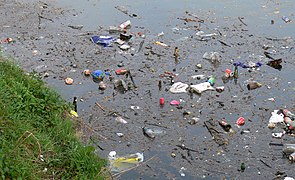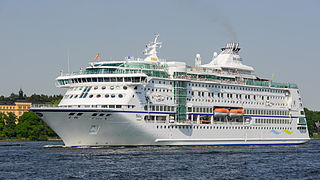Ah cruise ships.. many people seem to have this romanticized image of them. They are like Vegas on waters, hundreds of kilometers away from home, where people close to you cannot see the stupid things you might do. “What happens on a cruise ship stays on cruise ship” seems to be a motto so many people live by. For people who never had a chance to visit one of these huge vessels, this luxurious, exclusive image might be rooted deep inside their minds. But not for me. I used to think this way until my first trip. The truth was quite shocking honestly. Small, cramped cabins, food that is mediocre at best, people who had a little too much happy juice even before leaving the dock. Despite of this, in 2019 around 30 million passengers packed their bags and headed to spend time on a cruise.

Environmental and human impact
I believe that despite of cruise industries active effort to silence the criticism against their practices, it is becoming more commonly known how disastrous effect these ships has on the environment. Average passenger’s carbon footprint triples in size after climbing aboard. The most obvious environmental hazard of these ships is the huge amounts of emissions they create to be able to move. During 1 day, a large cruise ship emits over 5 tonnes of nitrogen oxide (NOx) emissions and same amount of sulfur dioxide as 3,6 million cars. NOx gases react to form smog and acid rain, as well as ground level ozone that has adverse negative health effects on humans. Sulfur dioxide pollution is known to cause deforestation, acidifying waters causing aquatic life to suffer, problems in respiratory systems in humans and animals and many other undesirable things. Additionally multiple cruise line companies have been caught to discarding fuel, sewage and trash to the ocean.

So what can we do?
On my opinion the whole habit of spending leisure time on a miniscule city should be retired, but even in this case we are still dependent on ships. Ships transport 80 % of the world’s commodities. Visions of electric ships has been suggested multiple times, but with today’s battery technology they are just not possible. The next best thing are the hybrid ships that run partly on electricity and rest of the time with marine diesel that is less polluting than dirty oil, but it is also more expensive. Ships could install catalytic converters, similar to cars. These separate harmful nitrogen oxides into nitrogen and oxygen and a soot filter retains particulate matter.
The important thing is that we cannot turn blind eye on how bad these cruise ships are for the environment. Nowadays flying and driving is necessary for at least certain group of people and transporting goods is vital for countries economic success, but cruise ships are unnecessary.




